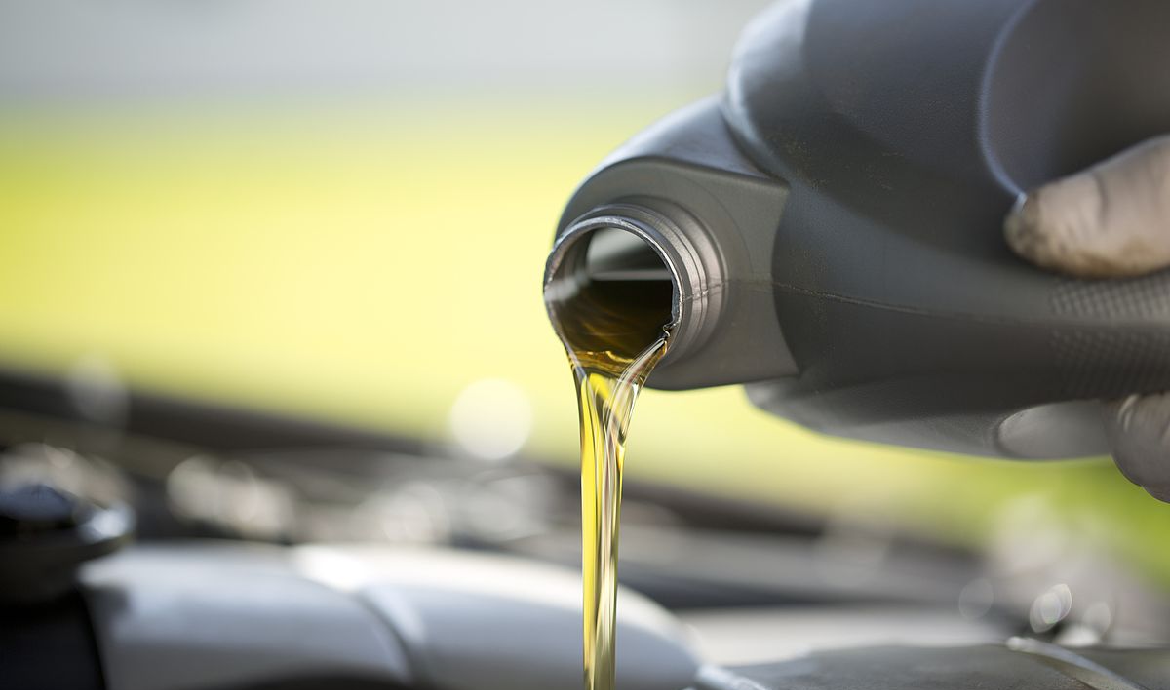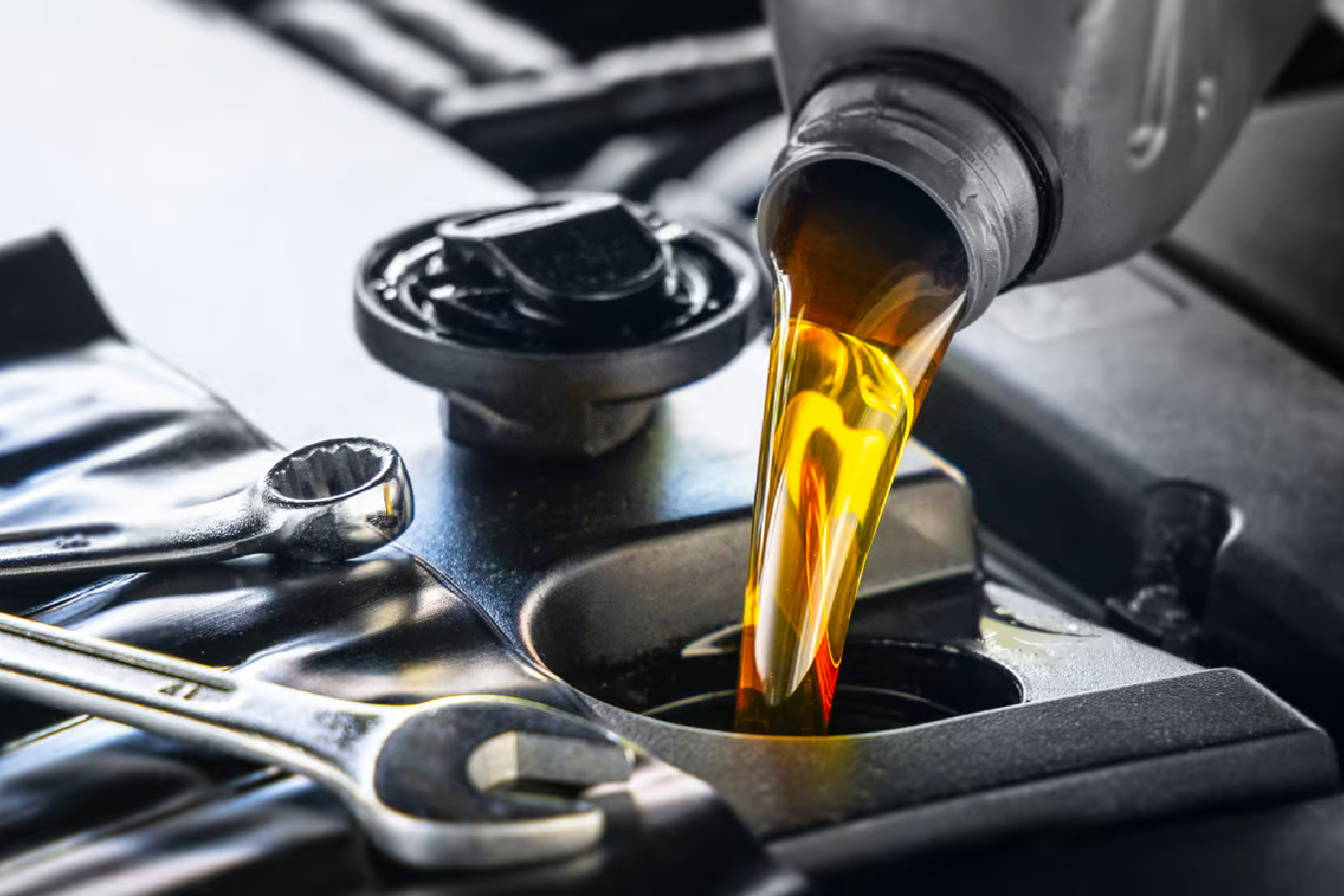- Your cart is empty
- Continue Shopping
The Ultimate Guide to Engine Oil: Everything You Need to Know
-
Hybr Auto India Pvt Ltd
- Posted on

Introduction
Engine oil is the lifeblood of your vehicle’s engine, playing a pivotal role in its performance and longevity. Whether you’re a seasoned car enthusiast or a new vehicle owner, understanding engine oil is essential for keeping your engine in top shape. In this guide, we’ll explore the different types of engine oil, their benefits, how to choose the right oil, and tips for maintaining your engine effectively.
Hybr Auto India Pvt Ltd
1. What is Engine Oil?
Engine oil is a lubricant that reduces friction between the engine’s moving parts, ensuring smooth operation and preventing wear and tear. It also helps to cool the engine, clean contaminants, and protect against rust and corrosion. Without proper lubrication, your engine would quickly degrade, leading to costly repairs or replacements.
2. Types of Engine Oil
a. Conventional Oil
- Description: Conventional oil is derived from refining crude oil. It’s the most basic type of engine oil and is often used in older vehicles with simpler engine designs.
- Best For: Vehicles with standard engine designs and moderate driving conditions.
- Pros: Economical and readily available.
- Cons: Requires more frequent changes compared to other types of oil.
b. Synthetic Oil
- Description: Synthetic oil is engineered from chemical compounds to offer superior performance. It’s designed to withstand extreme temperatures and provide better protection under high stress.
- Best For: Modern vehicles, high-performance engines, and extreme driving conditions.
- Pros: Superior lubrication, longer-lasting, better performance in extreme temperatures.
- Cons: More expensive than conventional oil.
c. Synthetic Blend Oil
- Description: A mix of synthetic and conventional oils, synthetic blend oil offers a middle ground between cost and performance.
- Best For: Drivers looking for better performance than conventional oil but at a lower cost than full synthetic.
- Pros: Provides improved protection and performance at a lower price point than full synthetic.
- Cons: Not as high-performance as full synthetic oil.
d. High-Mileage Oil
- Description: Formulated with additives to extend the life of engines with over 75,000 miles, high-mileage oil helps to condition seals and reduce oil consumption.
- Best For: Older vehicles with higher mileage.
- Pros: Helps reduce oil burn-off and leaks, conditions engine seals.
- Cons: Not necessary for newer vehicles.


3. How to Choose the Right Engine Oil
- Consult Your Owner’s Manual: Your vehicle’s manufacturer provides specifications for the type and viscosity of oil that best suits your engine. Always follow these recommendations.
- Understand Oil Viscosity: Oil viscosity is indicated by a two-part number (e.g., 5W-30). The first number represents the oil’s flow at cold temperatures (W stands for winter), and the second number represents its flow at high temperatures.
- Consider Your Driving Conditions: If you frequently drive in extreme temperatures, tow heavy loads, or navigate stop-and-go traffic, you might need a different type of oil compared to normal driving conditions.
4. Benefits of Regular Oil Changes
- Prevents Engine Wear: Regular oil changes reduce friction between engine parts, minimizing wear and tear.
- Enhances Engine Performance: Clean oil ensures that your engine operates smoothly and efficiently.
- Improves Fuel Efficiency: Proper lubrication can help your engine run more efficiently, potentially improving fuel economy.
- Extends Engine Life: Regularly changing your oil helps prevent damage from contaminants and prolongs the life of your engine.
5. Signs That You Need an Oil Change
- Oil Change Light: Most modern vehicles have an indicator light that signals when it’s time for an oil change.
- Check Oil Level: Regularly check the oil level using the dipstick. If it’s low or the oil looks dirty, it might be time for a change.
- Oil Color: Fresh oil is typically amber or golden. If the oil appears dark and dirty, it’s time for a replacement.
- Engine Noise: Increased engine noise or knocking sounds can indicate that the oil is old or low.
6. DIY Oil Change vs. Professional Service
- DIY Oil Change: Changing your oil yourself can save money and gives you control over the process. Make sure you follow proper procedures and dispose of the used oil responsibly.
- Professional Service: Opting for a professional service offers convenience and expertise. Ensure that the service provider uses high-quality oil and follows your vehicle’s specifications.


